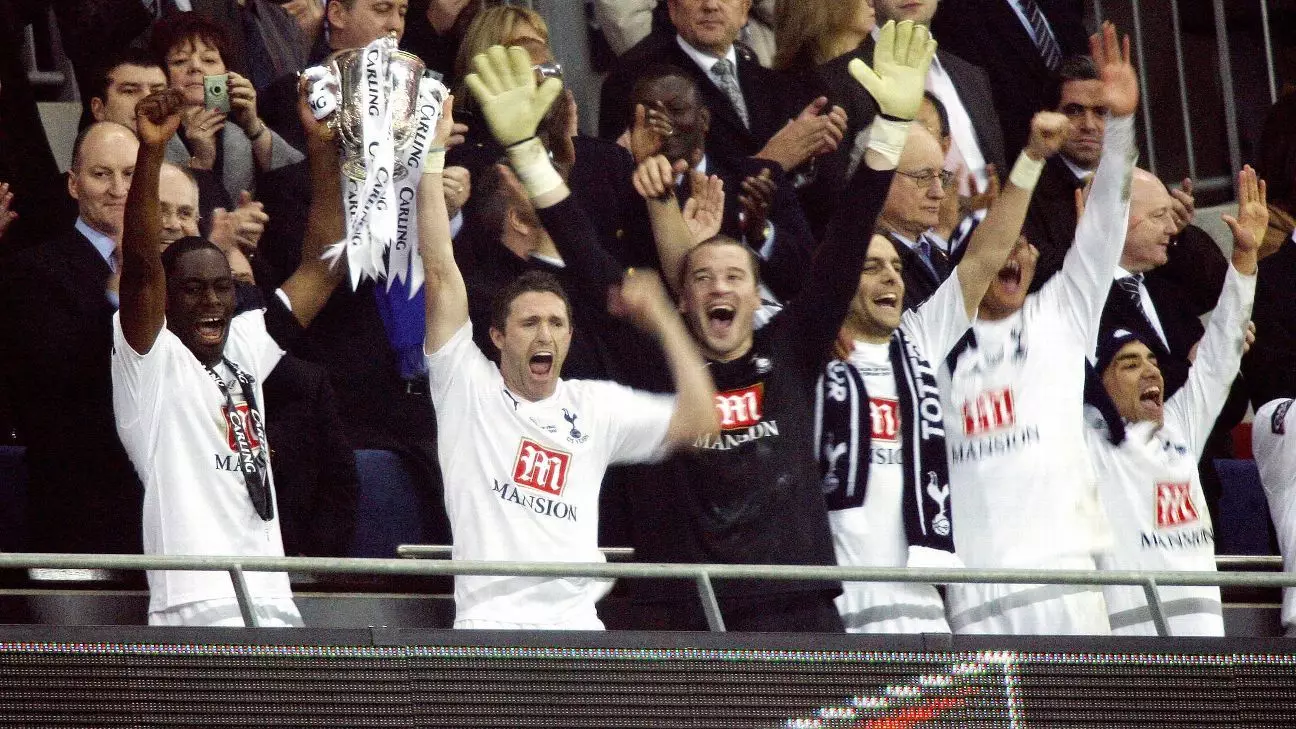Tottenham Hotspur’s history is characterized by significant moments of triumph interspersed with lengthy periods of drought. While many football clubs can boast recent successes and a solid haul of trophies, Spurs find themselves in an uncomfortable position, grappling with a 16-year absence of silverware since their last major victory in the 2008 Carabao Cup. This ongoing trophy drought not only shapes the identity of the club but also casts a long shadow over the ambitions of its management and players.
Tottenham, as a club, occupies a prestigious place in the tapestry of English football. The team’s historical dominance during the 1960s saw them not only claim numerous honors but also achieve milestones such as being the first English side to complete the elusive ‘double’ in the 20th century—a feat that remains a proud badge of honor for the club’s fans. Spurs won their first-team titles and lifted numerous prestigious cups, including a total of eight FA Cups, which ties them for the third-most wins in the history of the competition.
Despite these achievements, it is difficult to ignore the palpable sense of frustration that often infiltrates discussions about the club. For every mention of their illustrious past, there is an ironic reminder of how difficult the present has become when it comes to winning trophies. This dichotomy serves as a backdrop to the perennial pressure each manager faces upon taking the helm.
Since Juande Ramos led the team to their last trophy, managerial roles at Spurs have turned into hot seats filled with expectations and the need for immediate success. All eight permanent managers since Ramos have grappled with the weight of the club’s trophy-less streak, enduring highs and lows while striving to satisfy fanatical supporters yearning for a return to form. With each failed campaign, the scrutiny on the coaching staff increases, and nothing reveals this intensity more than the club’s recent fortunes.
Ange Postecoglou, the latest manager to step into this charged environment, brings with him a fresh perspective—one honed from successful stints in Australia, Japan, and Scotland. He is tasked with not just reforming the squad but also changing the narrative surrounding the club’s trophy ambitions. The expectation is set high for Postecoglou, as fans hope he can employ his attacking philosophy to breathe new life into the players and ultimately break the trophy drought.
While the trophy cabinet has remained barren in recent years, Spurs have not been without their close brushes with glory. Notably, the club reached the Champions League final in 2019, a remarkable achievement that was both exhilarating and heartbreaking. Overcoming formidable adversaries such as Manchester City and Ajax showcased the team’s potential to compete at the highest level. Yet, the bitter defeat to Liverpool in the final leaves a lingering ache for fans who dream of being crowned champions once more.
Moreover, the club’s revival under Mauricio Pochettino brought a sense of hope and ambition that seemed sustainable. Pochettino constructed a formidable squad, but even he eventually faced the brunt of the ambition-versus-reality dichotomy that has plagued the club. Each managerial change seems to reset expectations, leading to uncertainty and speculation regarding the identity of the team, and that includes the project being developed on the pitch.
As Spurs look toward the future, the focus remains not solely on achieving immediate success but also on long-term strategic development. The club is in a unique position where they can revitalize their spirit through youth development and capitalizing on the wealth of talent in their ranks. There is a growing sense that the club’s leadership must embrace patience as they aim to cultivate a winning squad over time.
Inherent to this journey is the understanding that trophy success may be rooted in more than luck; it requires continuity, a clear vision, and significant investment in building a resilient team. Spurs must find a way to balance their storied history with modern football realities, building on both past successes and lessons learned from heartache.
Tottenham Hotspur’s trophy drought is more than just a statistic; it embodies a complex narrative of pressures, expectations, and the quest for greatness. As the club navigates this turbulent landscape, their journey serves as a reminder of the ever-elusive nature of success in football, and the hope that someday, the tide will turn, and the glory days will return.

